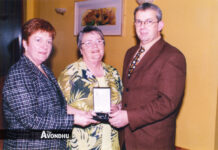The Road Safety Authority (RSA) and An Garda Síochána are asking all road users to act responsibly and safely on the roads. In particular, drivers are being warned of the dangers of driving the morning after a night of drinking where their driving could still be significantly impaired by alcohol.
In the five year period 2011-2015 a total of 15 people lost their lives and a further 34 people were seriously injured in road collisions between 16th-18th March.
Ms Moyagh Murdock, Chief Executive of the RSA said, “St Patrick’s Festival is traditionally a time for people to enjoy a break from work, school or college, and enjoy the festivities around the country. We’re not suggesting that people don’t enjoy themselves but we would urge people to act safely and responsibly, particularly when it comes to alcohol and road use. If you decide to go out for the night, leave the car at home and take the sensible option by using a designated driver or getting a taxi, hackney to and from your destination.”
“It roughly takes you about one hour for your body to get rid of one unit of alcohol, that’s a half pint or standard glass of wine.”
“This is also important the morning after the night before as you may still be over the limit without realising it. It roughly takes you about one hour for your body to get rid of one unit of alcohol, that’s a half pint or standard glass of wine. If you got to bed in the early hours and didn’t get a good night’s sleep, this will magnify the impairing effects of any alcohol in your system.”
Chief Superintendent Aidan Reid, Garda National Traffic Bureau said, “An Garda Síochána is committed to ensuring that the incidences of drink-driving on our roads are reduced. Simply put, drink-driving destroys lives – at best, you could lose your licence but far worse, and far more difficult to live with, is the possibility of seriously injuring or killing someone on the roads. Our members will be patrolling the road network throughout the country over the St Patrick’s Festival period in marked and unmarked vehicles and would like to remind drivers that in addition to mandatory breath testing, they can be breath-tested if they commit any road traffic offence. So please make sensible choices when using the roads and never, ever drink and drive.”
“In particular, I would remind drivers of the dangers of driving the morning after the night before. 12% of all drink driving arrests occur between 8am and 2pm and of those, almost a third happen on a Sunday, peaking between 11am and 2pm. So it is critical that drivers take measures to ensure their safety and the safety of others and this means leaving the car at home and taking a taxi or public transport the morning after if they need to get somewhere. It’s just not worth the chance if you are still over the legal limit.”
Ms Murdock also warned pedestrians of the dangers of consuming alcohol, saying, “It’s hard to believe but two thirds of pedestrians killed on our roads have consumed alcohol. Alcohol makes you unsteady on your feet and less capable of crossing the road safely or staying upright. It also impairs your judgement, making you more likely to step out in front of oncoming traffic because your ability to judge safety and distance is significantly impaired. The safest thing to do if you’re heading out for the night is to plan your journey home by organising a lift, a taxi or using public transport. I would also encourage people to look out for each other – if your friend or relative is under the influence of alcohol, make sure they get home safely.”
To raise awareness of the dangers of driving the morning after a night of drinking, the RSA and An Garda Síochána will broadcast a short information video on St Patrick’s Day. The video clearly shows what a driver can expect if caught drink driving. In the scenario shown, a driver who is detected driving illegally in a Bus Lane in the morning rush hour is breath tested, fails, is arrested and taken to Store Street Garda Station. The video will be promoted online and through social media.
To date this year, 32 people have been killed on Irish roads, one more than the same period last year. 166 people lost their lives on Irish roads in 2015.









